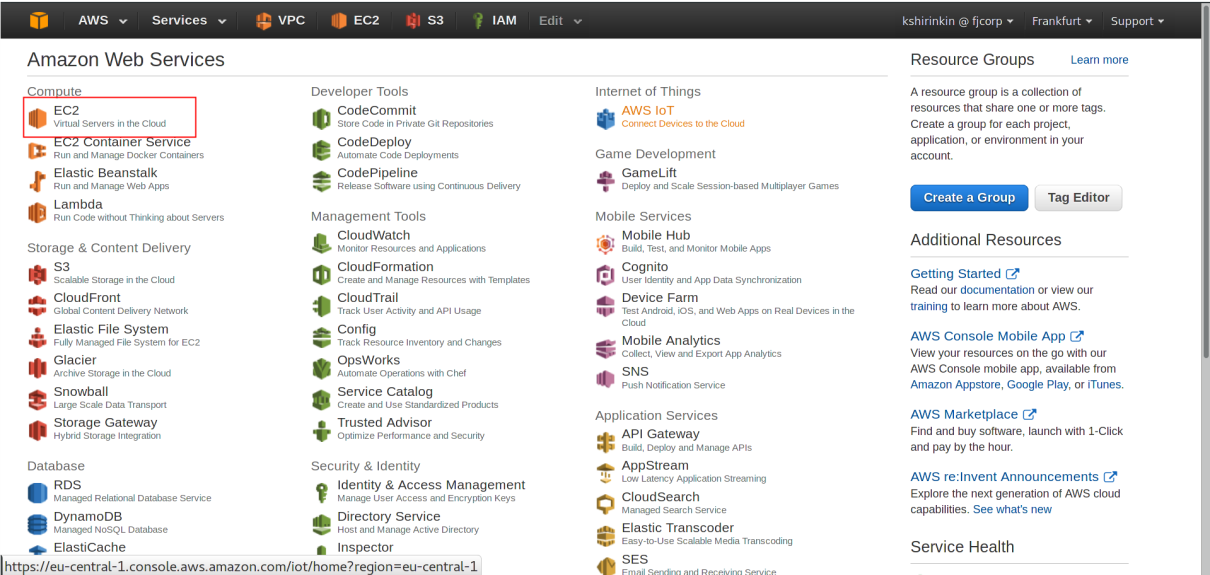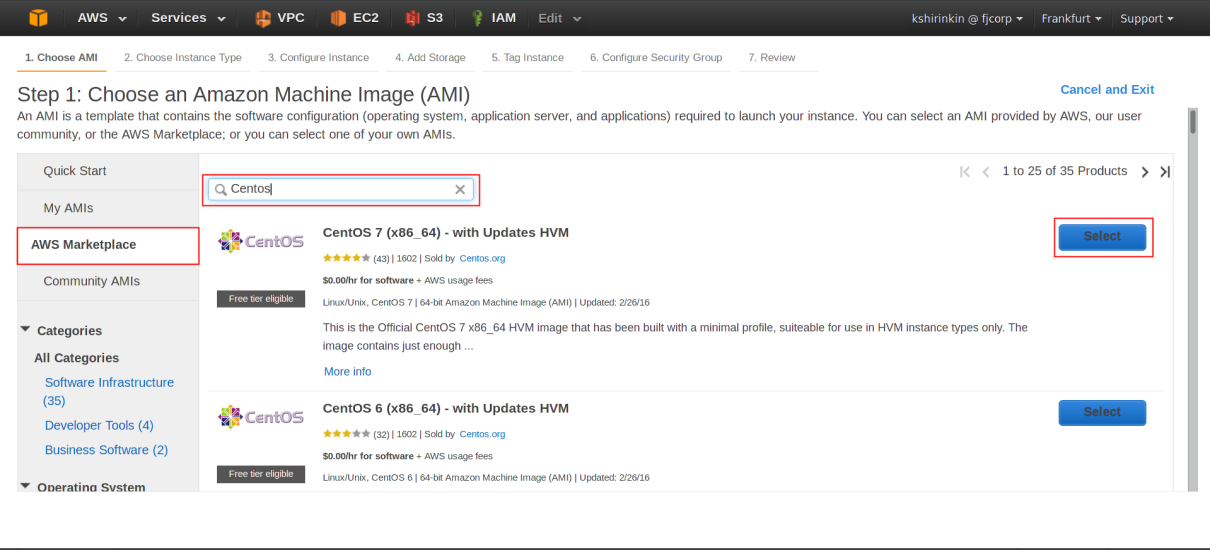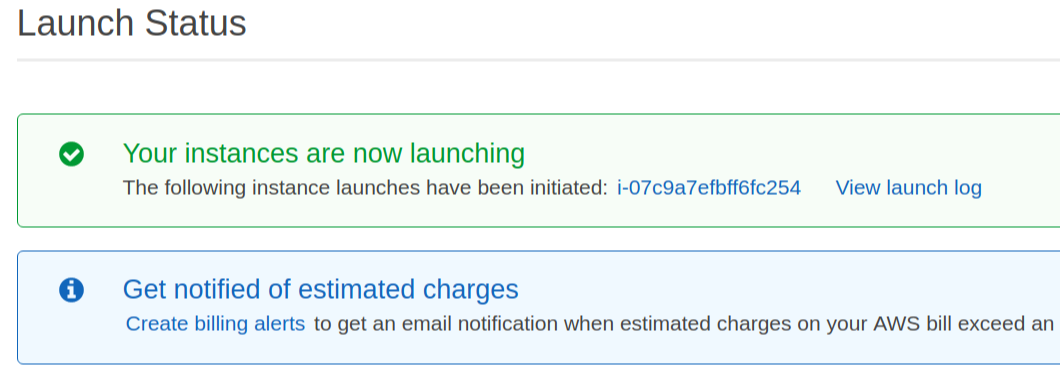Using Elastic Compute Cloud
We will look at three ways of creating an EC2 instance: manually via the Management Console, with the AWS Command Line Interface (CLI), and with Terraform.
Creating an instance through the Management Console
Just to get a feel of the AWS Management Console and to fully understand how much Terraform simplifies working with AWS, let's create a single EC2 instance manually:
- Log in to the console and choose
EC2from the list of services:

- Click on
Launch Instance:

- Choose
AWSMarketplace from the left sidebar, typeCentosin the search box, and click on theSelectbutton for the first search result:

- On each of the next pages, just click on
Nexttill you reach the end of the process and you get a notification as follows:

As you see, it's not really a quick process to create a single virtual server on EC2. You have to choose an AMI, an instance type, configure network details and permissions, select or generate an SSH key, properly tag it, pick the right security groups, and...













































































